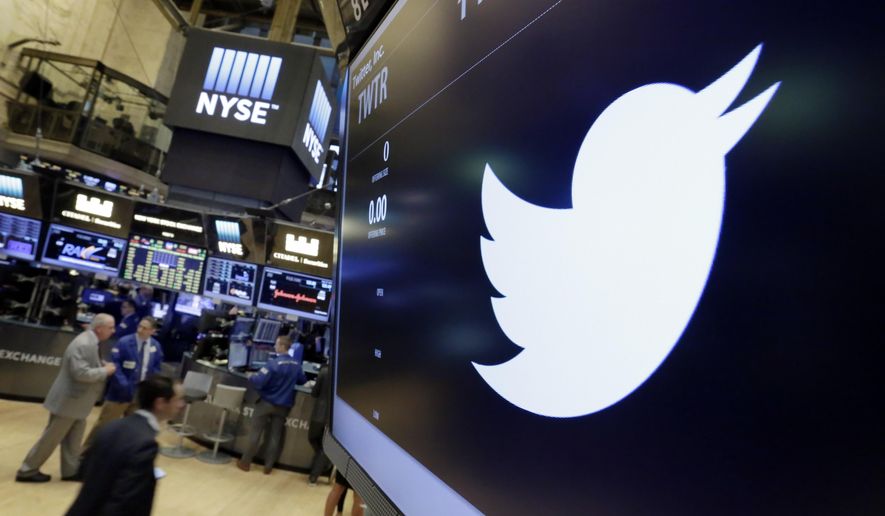A survey shows a significant number of Democratic women are reacting to Hillary Clinton’s unexpected election loss by blocking, “unfollowing” and “unfriending” people on social media who express political opinions they don’t like.
Thirty percent of Democratic women reported cutting off online communication with someone for political reasons since the Nov. 8 election, according to a Public Religion Research Institute poll published Monday. They are more than twice as likely to blot out dissenting points of view from their social media timelines as Democratic men, who reported doing so at a 14 percent rate.
Rachel Alexander, senior editor of The Stream news website, said liberal women were more invested in electing the first female president and, therefore, are less tolerant of opposing points of view in the aftermath of Mrs. Clinton’s stunning defeat.
“Hillary’s slogan, ’I’m With Her,’ was all about, ’I’m a woman, vote for me,’” Ms. Alexander said. “That’s essentially what it was saying. So I think Hillary pushed all of these women into thinking we’ve got to elect the first woman president.”
The survey found Republicans have been more tolerant of opposing points of view since Donald Trump’s election victory. Just 10 percent of Republican women and 8 percent of Republican men reported unfriending people on social media for political reasons.
Overall, 24 percent of Democrats said they have used “block,” “unfollow” and “unfriend” icons to deal with dissenting viewpoints since Election Day, compared with 9 percent of Republicans and 9 percent of independents, the survey found.
Those who self-identified as politically liberal were even less tolerant of opinions that strayed from their preconceived notions, with 28 percent acknowledging that they had shunned at least one online political adversary, compared with 11 percent of self-identified moderates and 8 percent of self-identified conservatives.
Shawn Mitchell, a former Republican state senator from Colorado who is outspoken about his political beliefs on Facebook, said the survey results are consistent with his political interactions on social media since the general election.
“That’s kind of funny,” Mr. Mitchell said. “Mostly it was guys arguing during the primary season, but since the election, it’s been a liberal woman who threatened to unfriend me and hasn’t done so yet, and one of her liberal friends, who is also female, that blocked me while we were debating the merits of the election.”
He said the disparity between liberal men and women makes sense given their comparative commitment to Mrs. Clinton’s campaign.
“It sounds logical,” Mr. Mitchell said. “But liberals are also generally more likely to block friends on social media than conservatives are.”
The PRRI poll is one of several indications that this year’s presidential race had a particularly injurious effect on friendships and even marriages between those who hold opposing political beliefs.
A Monmouth University poll in September found that 7 percent of respondents had ended their friendships over the presidential race. Fully 70 percent of Americans said the election had brought out the worst in people, compared with 4 percent who said it had brought out the best.
A Pew Research Center survey published in October also found that, among spouses who disagreed about the general election, 41 percent reported arguing over the candidates.
“Everybody felt strongly this cycle,” Mr. Mitchell said. “With the stakes on both sides, Trump’s unconventional candidacy and his brash, insulting manner, people reacted to him in a way that isn’t typical of politics because he presented in a way that’s not typical of politics.”
Underscoring the animosity between political adversaries this election cycle is the prevalence of social media, Mr. Mitchell said. In addition to allowing a never-ending stream of instantaneous reactions to politically charged events, platforms such as Facebook and Twitter do not allow for the sort of face-to-face interaction that curtails prejudice and elicits sympathy for those with whom we disagree, he said.
“No. 1, you can’t see or hear each other face to face, so there’s no room for human nuance and mutual presence,” Mr. Mitchell said. “No. 2, the feedback is immediate. Unlike where you occasionally talk to someone [in person], you can war digitally all day long. The combat is never-ending. And No. 3, it’s often with people you don’t know as well as people you would talk to face to face, because they’re just sort of cyberacquaintances.”
But Ms. Alexander said social media is value-neutral and, when approached with the right mindset, can bring people closer together. She said the “irrational” significance people attach to politics and the instant nature of online interaction combine to create a perfect storm.
“I’m a more easygoing person, so I’ve gotten closer to friends and family on social media,” she said. “But it also can be polarizing, especially if someone tends to have a more polarizing personality. It just amplifies it.”
Mr. Mitchell said the ability to form relationships with political adversaries is instrumental to a flourishing society and the mutual pursuit of truth. He said friendship should be seen as a higher good than politics.
“If we can’t be friends across political differences, then our civil fabric frays, and we become enemies who can’t communicate, and that is sort of a scary trend,” he said.
In the wake of Hillary Clinton’s stunning general election defeat, 30 percent of Democratic women reported cutting off communication with someone on social media for political reasons, according to a PRRI poll published on Monday.
• Bradford Richardson can be reached at brichardson@washingtontimes.com.




Please read our comment policy before commenting.